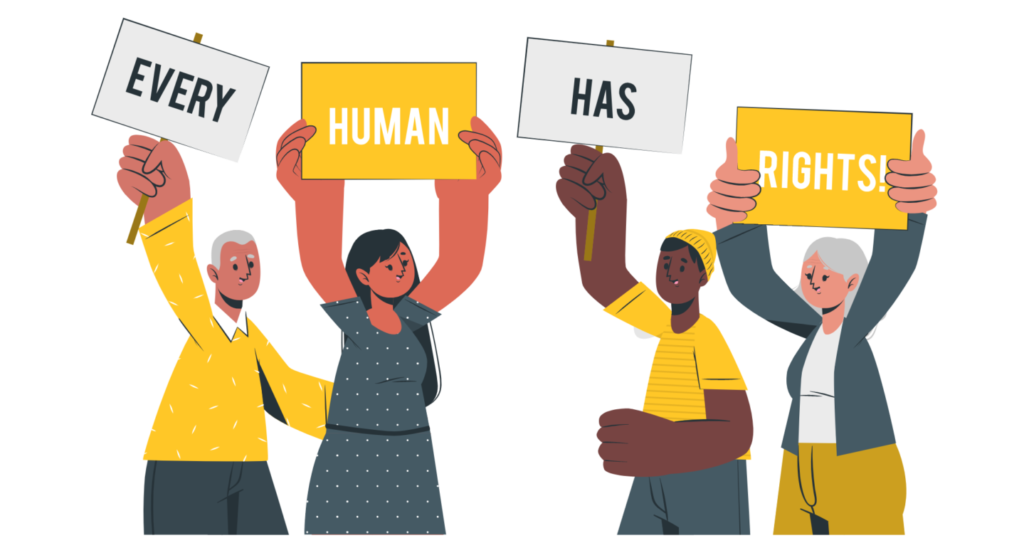To mark Human Rights Day on 10th December, our friends at Meic are giving us the lowdown on what human rights are and what they mean for you.
What are human rights?
These are a set of rights that every human should have. You have these whatever your race, sex/gender, nationality, colour, religion, sexuality, disability or language. There are 30 rights and freedoms (called articles) in the Universal Declaration of Human Rights (UDHR). Countries that are part of the United Nations agreed to them on 10th December 1948. They made a commitment to make sure that every person had these.
Some of these include:
- a right to life
- freedom from torture
- freedom from slavery
- a right to education
- freedom of thought, belief and religion
- a right to a fair trial
- a right to participate in free elections
For a full list, click here.
All human beings have rights and countries worldwide, including Wales, are committed to making sure that these rights are met.

What about rights for children and young people?
The UDHR is for all ages, but as a child or young person, you have your own special set too, called the United Nations Convention on the Rights of the Child, otherwise known as the UNCRC, which are specific to you.
There are 54 articles (or set of rights) in the UNCRC. We won’t go through them all here, but they include a right to:
- grow up to be healthy
- say what you think should happen and be listened to
- information
- not be harmed
- learn and go to school
- relax and play
- special help if you’ve been abused
For a full list, check them out on the Children’s Commissioner for Wales website. The Children’s Commissioner works hard to make sure that people understand the importance of children’s rights. The commissioner listens to you and influences the government and organisations to make sure that they remember you when they make decisions.
Why is Human Rights Day so important?
Human Rights Day is a reminder to respect people’s human rights and dignity. But if countries around the world agreed to them and made laws to ensure they are met, then why do we need a special day at all?
Even though these commitments have been made, there are still examples where people’s human rights are not met, are denied, and there are still inequalities that exist. For example, in some countries, young children are forced into physical labour, and they don’t get an education. These things also go against the UNCRC; Article 28 – the right to an education; and Article 32 – child labour, the right to be protected from economic exploitation and dangerous work environments.
In Wales and the UK, the government has a strong commitment to ensuring that people’s rights are met. However, children and young people still face discrimination or inequalities sometimes because of their race, religion, sex/sexuality, disability, etc. This goes against Article 2 – non-discrimination.
Need help?
Meic is a helpline for children and young people in Wales, and they want to make sure that your rights are being met. The UNCRC is very important to all the advisors at Meic. The helpline was set up in 2010 to ensure that children and young people up to the age of 25 in Wales have access to information, advice and advocacy. You can contact Meic by phone, text or online chat using the details below.

Related Information
UNICEF have a fun app that will teach you all about your rights. You can download Right Runner on Google Play or the App Store for free.
TheSprout has an info page on the UNCRC which shows where and how you can get support in Cardiff.




